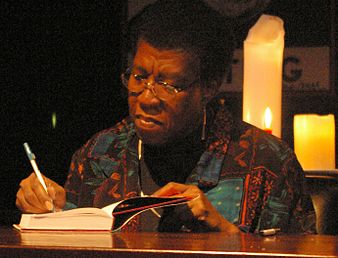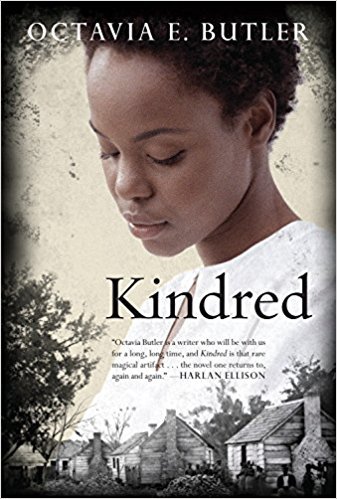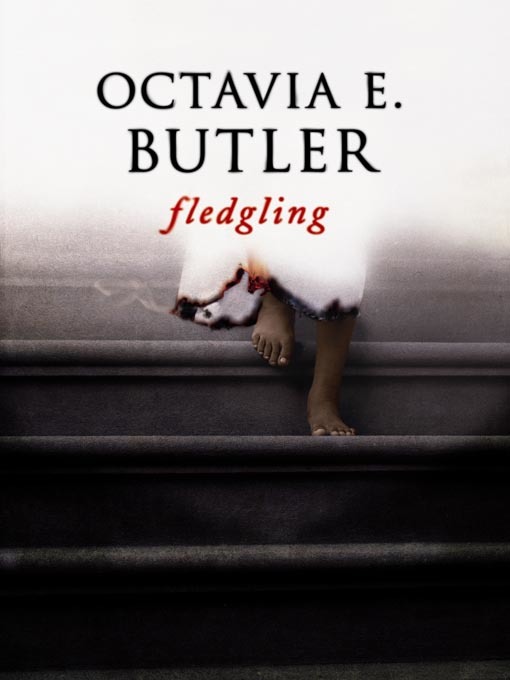Introduction
Octavia Butler's characterization of her protagonists as strong, self-dependent, women of color differentiates them from the typical depictions of women and people of color in science fiction, when they are depicted at all. Rather than providing long winded physical descriptions, pages long action scenes, and starship battles, Butler's writings are novels of words, not combat. Her characters literally speak for themselves and inform the reader of their background, intelligence, education, with their words, dialogue, and thought processes. Though she is frequently classified as a science fiction writer, Butler's works more often fall under the category of speculative fiction, a category that focuses more on the human element in science fiction or fantasy settings, rather than focusing on aliens, dystopias, and technology (Oziewicz). Butler herself said that Kindred is not science fiction, as there is no science involved. Rather, Kindred is narrated time travel, Dana's narration and memory being the most important transportation (Rushdy 137).
Octavia Butler's characters are black, female, and strong, and though they are identified by their physical characteristics and their intelligence, their speech is not used to convey any ethnic identity. I believe this is a reflection of Ms. Butler's own speech, as she is a strong, African American woman who speaks carefully and deliberately, but without any identifying AAVE traits. In the video interview below is an example of her speech. This is Octavia Butler on Charlie Rose, June 1, 2000.
In this project I will compare the language choice of the main characters in Octavia Butler's two stand-alone novels, one written at the beginning of her career and one at the end: Kindred, published in 1979 and Fledgling, published in 2005 shortly before her death. Kindred and Fledgling explore the individual sense of self, and the change and development of the self in the face of trauma, specifically as African American women, as both feature strong, young black women out of place in their environments and struggling to survive among their enemies (Parham). They use their wits, skills, intelligence, and their language to find allies in a society that is set against their existence and their freedom.
Plot
Kindred, set in 1976, the 200th anniversary of the American Revolution, follows the time travels of an African American woman named Dana. Without explanation, Dana is pulled back in time to the days of her ancestors, both slaves and free. On several occasions Dana intervenes in the life of a child named Rufus Weylin, who she learns will become her great grandfather.
As a modern, free black woman thrust into the early 1800s, Dana must use her strength and wits to stay out of danger while protecting the lives of Rufus and Alice, her future great grandmother. Butler came up with the idea for Kindred in college after hearing other African American student's criticism of slaves for not fighting back more. As Butler put it "Because they don't really understand how serious it is when the whole society is literally arrayed against you and arrayed to really keep you in your place. If you get seriously out of line, they will kill you because they fear you"(Sanders).
Plot
Fledgling is the story of Shori, initially called Renee, a young vampire who is the only survivor of the genocidal attack on her family. In this story the vampires, called Ina, live in a symbiotic relationship with humans who provide them with protection and nourishment in exchange for increased health, strength, and longevity. Shori is a biological experiement in joining Ina and human genetics to create, by virtue of her darkened skin, an Ina that blends in more easily with the human population and is less suseptible to sunlight.
Butler wrote Fledgling as a simple book during a bout of writer's block, though it ended up being her final novel. As she stated during an interview: "And then, for some reason I got hold of a Vampire story and it was a lot of fun, I really enjoyed it. And after awhile, I found myself writing one. It's a novel, I'm enjoying it and I hope other people will, too" (Sanders). Butler puts her own twist on the vampire mythology, creating a race of vampires that build communal family units with humans, not killing them for their blood but instead living in symbiosis. Shori, who physically appears to be a ten year old African American girl, must find humans she can trust in order to survive, and discover if she is the only one of her kind.



